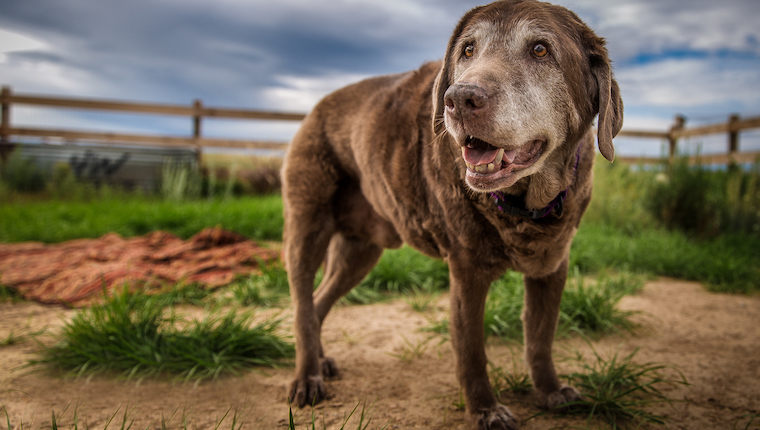
What are the dog laws in Kansas? Does Kansas have dog laws? If you live in this state, you might be wondering what the law says about issues like rabies vaccination, dog bites, dog cruelty, and dog chains.
Read on for more information about dog laws in Kansas.
What Dog Vaccines are Required by Law in Kansas?
Surprisingly, there is no state-level requirement for rabies vaccination in Kansas. However, many cities, and some counties, do have a rabies vaccination ordinance or resolution in effect. There are at least 194 municipalities that require dogs to be vaccinated and 184 that require cats to be vaccinated.
If an unvaccinated dog bites a person, they will be considered as a potential rabies carrier. They will be put in quarantine for 10 days. If there are no rabies symptoms, they may return home post-vaccination. If they show signs of rabies, they will be euthanized for testing. If the dog is returned home, the owner must pay the cost of the 10-day impoundment.
What Are the Dog Bite Laws in Kansas?
Kansas is a “one-bite” state. This means that on a dog’s first bite innocent, the owner is usually not held liable under the presumption that they did not have knowledge of the dog’s aggressive behavior. There are exceptions in these cases. For example, a severe attack or mauling is likely subject to prosecution even if the dog in question had not been previously aggressive. Additionally, if there was reason to suspect the dog was dangerous – past behavior such as snapping, growling, and so on — the owner may still be liable.
There are cases where dogs will not be considered aggressors in attacks, even if previously proven to be dangerous. Dog owners are not responsible for attacks in which the dog was provoked or protecting the owner. This could include yelling at, hitting, or throwing objects at the dog. Additionally, if you were trespassing on private property and then were attacked by an otherwise contained dog, the dog’s owner would not be liable.
Additionally, in some cases, there may be a “common sense” prohibition on finding a dog owner liable. For example, most people know to leave an eating dog or a mother with puppies alone. Bothering an animal when you could predict aggressive behavior will not always result in liability for the owner.
A dangerous dog, particularly a repeat offender, may be euthanized if this is determined to be in the best interest of the safety of the community. After one documented bite, a dog is considered vicious in the state of Kansas. This means that subsequent bites may lead to euthanasia. Additionally, a severe enough attack could lead the court to determine euthanasia is the best course of action even for a first offender.
What Are Kansas Dog Abandonment Laws?
What is considered animal abandonment in Kansas?
According to 21-6412. Cruelty to animals, animal abandonment is illegal. The law notes that “Cruelty to animals is: (2) knowingly abandoning any animal in any place without making provisions for its proper care.” This means that simply letting an unwanted animal go loose instead of finding new caretakers is illegal. Animal abandonment is always dangerous to animals and people that may encounter them. It’s always better to surrender a pet to a shelter or rescue if you cannot keep them.
What is the punishment for animal abandonment in Kansas?
21-6412 defines the strict punishments for abandoning an animal in Kansas. Offenders are guilty of a “Class A nonperson misdemeanor, except as provided in subsection (b)(2)(B); and (B)nonperson felony upon the second or subsequent conviction of cruelty to animals as defined in subsection (a)(2), (a)(3), (a)(4) or (a)(5). Upon such conviction, a person shall be sentenced to not less than five days or more than one year’s imprisonment and be fined not less than $500 nor more than $2,500. The person convicted shall not be eligible for release on probation, suspension or reduction of sentence or parole until the person has served the minimum mandatory sentence as provided herein.” As animal abandonment falls under (a)(2), one could be guilty of a misdemeanor on a first offense, and a felony on a second offense.
Who pays for an abandoned dog’s vet care in Kansas?
Anyone charged with animal abandonment may be subject to paying for their previously owned animal’s vet care, boarding, and any additional expenses incurred during their trial. This must be court-ordered, so in some cases, the owner may not be held financially responsible.
What Are Kansas Dog Cruelty Laws?
What is considered dog cruelty in Kansas?
Kansas has a wide range of defined actions that are viewed as animal cruelty. According to Kansas law 21-6412, cruelty to animals is defined as any of the following:
- Knowingly and maliciously killing, injuring, maiming, torturing, burning or mutilating any animal.
- Knowingly abandoning any animal in any place without making provisions for its proper care.
- Having physical custody of any animal and knowingly failing to provide such food, potable water, protection from the elements, opportunity for exercise and other care as is needed for the health or well-being of such kind of animal.
- Intentionally using a wire, pole, stick, rope or any other object to cause an equine to lose its balance or fall, for the purpose of sport or entertainment.
- Knowingly but not maliciously killing or injuring any animal.
- Knowingly and maliciously administering any poison to any domestic animal.
What is the punishment for dog cruelty in Kansas?
21-6412 states that:
“Subsection (a)(1) or (a)(6) is a nonperson felony. Upon conviction of subsection (a)(1) or (a)(6), a person shall be sentenced to not less than 30 days or more than one year’s imprisonment and be fined not less than $500 nor more than $5,000. The person convicted shall not be eligible for release on probation, suspension or reduction of sentence or parole until the person has served the minimum mandatory sentence as provided herein. During the mandatory 30 days imprisonment, such offender shall have a psychological evaluation prepared for the court to assist the court in determining conditions of probation. Such conditions shall include, but not be limited to, the completion of an anger management program.”
Subsections 2-5 are considered a Class A nonperson misdemeanor. The punishment, upon being found guilty, is “no less than five days or more than one year’s imprisonment and be fined not less than $500 nor more than $2,500. The person convicted shall not be eligible for release on probation, suspension or reduction of sentence or parole until the person has served the minimum mandatory sentence as provided herein.”
Essentially, what this boils down to is that most offenses of animal cruelty are a Class A Misdemeanor in the state of Kansas. More severe offenses, such as severe cruelty resulting in death or disfigurement, would be charged as a misdemeanor.
What is the punishment for dogfighting in Kansas?
As in the other 49 states, dogfighting is a felony in Kansas. This doesn’t apply only to those directly fighting their animals. Charges can also occur for those betting on or attending dogfights in Kansas. It’s also illegal to train dogs for the intent of fighting, even if you aren’t directly participating in dogfights.
What Are Kansas Dog Chain Laws?
Tethering or chaining a dog is legal in Kansas. Somewhat controversially, Kansas does not have restrictions on tethering dogs. This can lead to neglectful situations technically not found to be illegal. However, tethering improperly can still be prosecuted as animal cruelty. For example, a painful tether that’s too heavy for the dog could be viewed as inflicting harm, leading to an animal cruelty charge. Keep in mind that many individual counties may have specific ordinances regarding tethering, so research your specific area. As a general rule of thumb, if you tether your dog, provide them at least three times the length of their body for space, keep the area clean and free of debris, attach safely without a choke collar, and provide shelter, food, and water.
How Does Kansas Dog Law Rank Against Other States?
The Animal Legal Defense Fund ranks Kansas at number 22 out of all 50 US States for animal protection laws. This makes Kansas a “middle-tier” state by their standards. There’s some things to love about Kansas’s animal defense laws. For example, assigning mandatory psychological evaluations to offenders can help prevent future offenses. However, there’s a lot to improve on too, such as a complete lack of tethering laws, and poorly defined animal cruelty laws that leave wiggle room for abuse.









